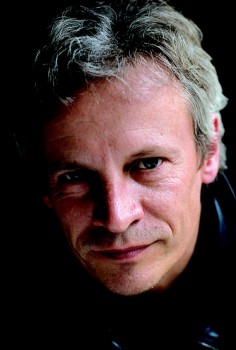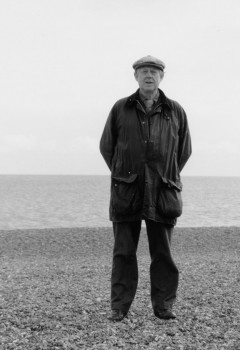Search results for "ilpo tiihonen/feed/rss2/Ilpo Tiihonen"
He came in through the bathroom window
30 June 1991 | Archives online, Fiction, Prose
A short story from Utslag och andra noveller (‘Rash and other stories’, Alba, 1989). Introduction by Pekka Tarkka
He heard a voice behind him:
‘Hey, Aspelin, what are you doing here?’
Awakening from a half-sleep, he looked around as Ilpo approached his seat.
‘I work near here. I’m teaching math to the visually impaired.’
Ilpo sat down next to him. For several seconds they sat without speaking. Then Aspelin collected himself.
‘And you?’
‘Visiting a friend. He lives in Mäkkylä.’ More…
RSS feeds
4 February 2009 |
Subscribe to our RSS feeds here.
- All categories: Books from Finland main RSS feed
/ Subscribe by email
By category:
- Fiction (extracts): RSS feed / Subscribe by email
- Drama: RSS feed / Subscribe by email
- Comics: RSS feed / Subscribe by email
- Poetry: RSS feed / Subscribe by email
- Prose: RSS feed / Subscribe by email
- Children’s books: RSS feed / Subscribe by email
- Non-fiction: RSS feed / Subscribe by email
- Reviews: RSS feed / Subscribe by email
- Authors: RSS feed / Subscribe by email
- This ‘n’ that: RSS feed / Subscribe by email
- Editorial: RSS feed / Subscribe by email
By subject (tag):
- Biography: RSS feed / Subscribe by email
- Children’s books: RSS feed / Subscribe by email
- Classics: RSS feed / Subscribe by email
- Contemporary art: RSS feed / Subscribe by email
- Finnish history: RSS feed / Subscribe by email
- Literary prizes: RSS feed / Subscribe by email
- Novels: RSS feed / Subscribe by email
- Photography: RSS feed / Subscribe by email
- Poetry: RSS feed / Subscribe by email
- Short stories: RSS feed / Subscribe by email
Eroica
31 December 1984 | Archives online, Fiction, poetry
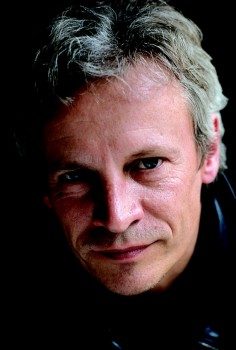
Ilpo Tiihonen. Photo: Irmeli Jung
Poems from From Eroikka (‘Eroica’, 1982). Introduction by Pertti Lassila
Ilpo Tiihonen (born 1950) published his first collection of poetry in 1975. From the beginning, his poems have been couched in the language of the street, and he uses slang liberally. Tiihonen has always been opposed to the miniature idylls of nature that were so characteristic of the 1970s. He aims at the secularisation of poetry, and he uses humour and comedy as a counterweight to high culture. He has evidently been influenced in his technique by Mayakovsky and Yesenin, to whom he often refers in his poems. His preferences in the poetic tradition are apparent in the fresh and liberal new interpretations of poems by Gustav Fröding contained in his collection Eroikka. Unusually for a contemporary Finnish poet, Tiihonen makes extensive use of rhyme. The result is often strongly lyrical poems that could almost be called modern broadsheet ballads, and may also bring Brecht to mind. More…
The height of the night
15 October 2009 | Letter from the Editors
 The autumnal equinox is past; and as we tilt towards the winter solstice, here in these northerly latitudes, the darkness expands palpably from day to day, giving more space for introspection – high on the list of Finnish national pastimes – and for reading.
The autumnal equinox is past; and as we tilt towards the winter solstice, here in these northerly latitudes, the darkness expands palpably from day to day, giving more space for introspection – high on the list of Finnish national pastimes – and for reading.
We want to make our website primarily a place for reading – not, in other words, for clicking, going on to the next thing. To think to the end what cannot be thought to the end elsewhere, as the Russian poet Osip Mandelstam said of his experience of staying in what was, at the turn of the 20th century, still Finnish Karelia. So you will not find our texts littered with links; for the most part, links appear at the end of a piece, not in it. More…
A Note on Nine Contemporary Poems from Finland
31 March 1987 | Archives online, Articles, Fiction, Non-fiction, poetry
Contemporary Finnish poetry, translated and introduced by Anselm Hollo
The last couple of months, it has been my pleasure to browse around in a tightly packed shelf of books of poetry published in Finland in the last five years. On the showing of these, and of the excellent anthology Modern finlandssvensk lyrik (‘Modern Finland-Swedish poetry’, 1980), edited by Claes Andersson and Bo Carpelan, poetry certainly seems to be alive and well in the old homeland. In a way, the sheaf translated here is just first travel notes, individual works that struck my fancy seemed translatable: thus, by no means a ‘representative selection’.
Claes Andersson’s poem ‘When I was born, Helsinki was…’ was quite simply a direct hit (perhaps an unfortunate metaphor in that it deals, in part, with the WW2 air raids on Helsinki) – it brought back personal memories from my early childhood. But beyond those immediate circumstances, it is also a very moving evocation of the magnificent and terrifying world of magic children inhabit. Helena Anhava’s ‘These years…’, with its marvelous image of the great hinge turning in the human psyche at certain points familiar to anyone who has lived into middle age, seemed a fine example of her impressive body of meditative lyric poems, sharing a tenor of wistfulness not uncommon in Finland’s poetry with Bo Carpelan’s ‘You drive up…’, which is also a poem of the pangs of change. In Carpelan’s text, the clash between ‘wonderful clear Vivaldi’ on the protagonist’s car radio and the perceived tawdriness of the environment is beautifully balanced between genuine revulsion for the latter and a self-irony directed against the self-declared ‘finer sensibilities’ of the class that can afford them. Tua Forsström‘s ‘Do you want to hear something’ moves in a lovely dance figure from myth to everyday present: we see the interior world that is Nausicaa’s island shimmering through the exterior in which ‘someone’s/ balcony door whines all night like a cat’. More…
No place to go
30 March 2008 | Archives online, Fiction, Prose
Extracts from the novel Lakanasiivet (‘Linen wings’, Otava, 2007)
The clothesline swayed in the wind. Helvi closed her eyes and felt herself flutter into the air with the laundry. She flapped her white linen wings, straining higher, now seeing below the whole small peninsula city, its damp rooftops glittering in the morning sun, the blue sighs of the chimneys, the steamboats toiling on the lake and the trains chugging on their tracks. The whole of heaven was clear and blue; only far off in the east were there white pillars roiling – whether smoke or clouds, Helvi could not tell.
She flew north on her linen wings and saw the great bridges leading to the city, on whose flanks the hidden anti-aircraft batteries gasped the fumes of gun oil and iron, and continued her journey over the land, following the straight lines of the telephone wires. She flew over wooded hills and deep green fields, finally arriving on the slope of the great hill where her daughter now lived, in hiding from the war. More…
In praise of idleness (and fun)
21 December 2012 | Letter from the Editors
As the days grow shorter, here in the far north, and we celebrate the midwinter solstice, Christmas and the New Year, everything begins to wind down. Even here in Helsinki, the sun barely seems to struggle over the horizon; and the raw cold of the viima wind from the Baltic makes our thoughts turn inward, to cosy evenings at home, engaging in the traditional activities of baking, making handicrafts, reading, lying on the sofa and eating to excess.
It is a time to turn to the inner self, to feed the imagination, to turn one’s back on the world of effort and achievement. To light a candle and perhaps do absolutely nothing – which can in itself be a form of meditation.
That’s what we at Books from Finland will be trying to do, anyway. Support in our endeavour comes from an unlikely quarter. In 1932 the British philosopher Bertrand Russell published an essay entitled ‘In Praise of Idleness’, in which he argued cogently for a four-hour working day. ‘I think that there is far too much work done in the world,’ he wrote; ‘that immense harm is caused by the belief that work is virtuous’.
Russell was no slouch, as his list of publications alone shows. But his argument was a serious one, and we mean to put it into practice, at least over the twelve days of Christmas. ‘The road to happiness and prosperity,’ he wrote, ‘lies in an organised diminution of work.’ More…
Thirsty for poetry
22 May 2014 | This 'n' that
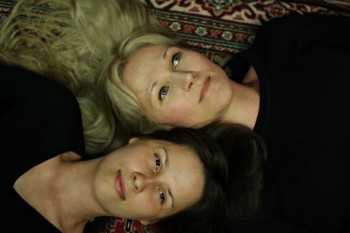
Johanna Venho (above) and Vilja-Tuulia Huotarinen. Photo:
Jano (‘Thirst’) is the name for a new online magazine: according to the writers and poets Johanna Venho and Vilja-Tuulia Huotarinen, its editors, it is a ‘poetry journal for all’ – for poets, the general public, for anybody.
Two issues have been published since November 2013. The theme of the first one is Time, of the second, Place.There are interviews, autobiographical texts, texts by critics and poets. More…
Midwinter in a minor key
23 December 2009 | Letter from the Editors
Finland’s end-of-year celebrations, both Christmas and New Year, take place in a thoroughly muted mode. At noon on Christmas Eve the Christmas Peace is rung out from the mediaeval cathedral in Turku, with the pious and seldom realised hope that peace and harmony will be unbroken for the following twelve days.
It’s true, though, that there’s little of the carousing that characterises Christmas celebrations further south; by and large, people stay behind closed doors, and there’s plenty of time, in the dark mornings and evenings and the brief twilight between them, to eat and drink and sleep – and, for those whose souls are not entirely claimed by the television and food-induced torpor, to read. More…
In memoriam Herbert Lomas 1924–2011
23 September 2011 | In the news
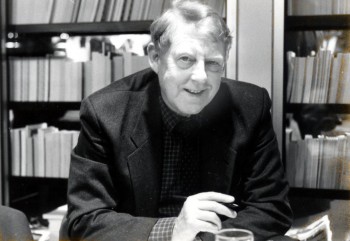
Herbert Lomas. Photo: Soila Lehtonen
Herbert Lomas, English poet, literary critic and translator of Finnish literature, died on 9 September, aged 87.
Born in the Yorkshire village of Todmorden, Bertie lived for the past thirty years in the small town of Aldeburgh by the North Sea in Suffolk. (Read an interview with him in Books from Finland, November 2009.)
After serving two years in India during the war, Bertie taught English first in Greece, then in Finland, where he settled for 13 years. His translations – as well as many by his American-born wife Mary Lomas (died 1986) – were published from as early as 1976 in Books from Finland.
Bertie’s first collection of poetry (of a total of ten) appeared in 1969. His Letters in the Dark (1986) was an Observer book of the year, and he was the recipient of several literary prizes. His collected poems, A Casual Knack of Living, appeared in 2009.
In England Bertie won the Poetry Society’s 1991 biennial translation award for one of his anthologies, Contemporary Finnish Poetry. The Finnish government recognised his work in making Finnish literature better known when it made him a Knight First Class of Order of the White Rose of Finland in 1987.
To Books from Finland, he made an invaluable contribution over almost 35 years – an incredibly long time in the existence of a small literary magazine. The number of Finnish authors and poets whose work he made available in English is countless: classics, young writers, novelists, poets, dramatists.
Bertie’s speciality was ‘difficult’ poets, whose challenge lay in their use of end-rhymes, special vocabulary, rhythm or metre. He loved music, so the sounds and tones of words, their musicality, were among the things that fascinated him. Kirsi Kunnas’ hilarious, limerick-inspired children’s rhymes were among his best translations – although actually nothing in them would make the reader think that the originals might not have been written in English. A sample: There once was a crane / whose life was led / as a uniped. / It dangled its head / and from time to time said:/ It would be a pain / if I looked like a crane. (From Tiitiäisen satupuu, ‘Tittytumpkin’s fairy tree’, 1956, published in Books from Finland 1/1979.)
Bertie also translated work by Eeva-Liisa Manner, Paavo Haavikko, Mirkka Rekola, Pentti Holappa, Ilpo Tiihonen, Aaro Hellaakoski and Juhani Aho among many, many others; for example, the prolific writer Arto Paasilinna’s best-known novel, Jäniksen vuosi / The Year of the Hare, appeared in his translation in 1995. Johanna Sinisalo’s unusually (in the Finnish context) non-realist troll novel Ennen päivänlaskua ei voi / Not Before Sundown, subsequently translated into many other languages, appeared in 2003. His last translation for Books from Finland was of new poems by Vilja-Tuulia Huotarinen in 2009.
It was always fun to talk with Bertie about translations, language(s), writers, books, and life in general. He himself said he was a schoolboy at heart – which is easy to believe. He was funny, witty, inventive, impulsive, sometimes impatient – and thoroughly trustworthy: he just knew how to find the precise word, tone of voice, figure of speech. He had perfect poetic pitch. As dedicated and incredibly versatile translators are really hard to find anywhere, we all realise our good fortune – both for Finnish literature and for ourselves – to have worked, and enjoyed with such enjoyment, with Bertie.
Poet Aaro Hellaakoski (1893–1956) was not a self-avowed follower of Zen, but his last poems, in particular, show surprisingly close contacts with the philosophy. ‘Secrets of existence are revealed once one ceases seeking them’, the literary scholar Tero Tähtinen wrote in an essay published alongside Bertie’s new Hellaakoski translations in (the printed) Books from Finland (2/2007). Bertie was fond of Hellaakoski, whose existential verses fascinated him; among his 2007 translations is The new song (from Vartiossa, ‘On guard’, 1941):
The new song |
Uusi laulu |
| No compulsion, not a sting. | Ei mitään pakota, ei polta. |
| My body doesn’t seem to be. | On ruumis niinkuin ei oisikaan. |
| As if a nightbird started to sing | Kuin alkais kaukovainioilta |
| its far shy carol from some tree – | yölintu arka lauluaan |
| as if from its dim chrysalis | kuin hyönteistoukka heräämässä |
| a little grub awoke to bliss – | ois kotelossaan himmeässä |
| or someone struck from off his shoulder | kuin hartioiltaan joku loisi |
| a miserable old bugaboo – | pois köyhän muodon entisen |
| and a weird flying creature | ja outo lentäväinen oisi |
| stretched a fragile wing and flew. | ja nostais siiven kevyen. |
| Ah limitless bright light: | Oi kimmellystä ilman pielen. |
| the gift of lyrical flight! | Oi rikkautta laulun kielen. |

